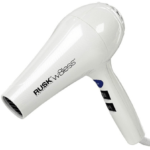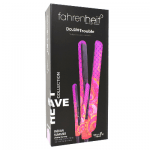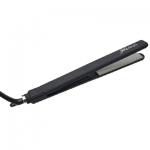It’s pretty likely you probably remember the time where coconut oil rose to fame. People were using it on everything from skin and hair to food. It was in magazines, commercials, and on poster advertisements. However, almost just as quickly as it gained traction and popularity, it sort of fell — at least in the beauty community. Why? Well, not every skin type is able to handle being slathered in a layer of comedogenic oil.
Below, we’re going to explore the nitty gritty details of coconut oil and answer the question: “is coconut oil good for your face?” If you’re interested in learning more about this natural cosmetic, keep reading!

Coconut Oil and Skin
Coconut oil contains a little something known as lauric acid. This type of chemical contains properties that are antimicrobial and fight bacteria that cause acne. With this in mind, you might think it would be good for acne-prone, oily skin. However, this particular chemical is known for clogging pores due to its occlusive nature.
When you’re introducing coconut oil into your skincare routine, it’s important to understand your skin type. Although it’s not super agreeable with skin that’s prone to acne or oily, if this is your skin type, you might be able to utilize its skin-sealing abilities to get the most out of your skin’s natural barrier function. Coconut oil is not an evil ingredient, it’s simply one you have to be cautious when using on your face.
Coconut Oil and Makeup
If you’re thinking about getting rid of your skincare product or makeup because coconut oil is on the ingredient list, you don’t necessarily need to go to that extreme. However, absolutely be careful and watch how your skin reacts to products that do contain the oil.
There are a myriad of makeup and skin products that use little bits of coconut oil because it gives cosmetics a nice glide and provides hydration and skin nourishment. So just be cautious as you continue taking care of your skin.
Additionally, a good rule of thumb to keep in mind is that if you are concerned about your pores getting clogged, it will always be better to wear less makeup. While we’re on the topic of makeup, coconut oil is great for removing it. So, remember this when you’re thinking about what you could use it for!
Ways to Use Coconut Oil
If you’re looking at your expensive, bottled organic coconut oil and thinking you wasted your money when you can’t really use it on your face like you initially wanted, it doesn’t have to go back to the kitchen. This product is actually a superb solution for skin found on your body that’s overly dry or sensitive. Since this skin is far thicker than facial skin, it can benefit from it much more effectively.
Additionally, if you’d like to get use out of your oil by applying it to your hair, it can be very effective as a deep-conditioning treatment. When you use it for this purpose, leave it in your hair for 20 to 30 minutes — if your hair is porous or dry, you can leave it in for longer. Since the oil can be on the heavy side, it’s not encouraged for use on thin or very fine hair.
Coconut Oil Alternatives for Skincare
Using coconut oil on your face may not be for you. In this case, it’s time to find a good alternative for it. Now that you’ve begun to oil your body and hair rather than your face, consider a substitute for your facial routine. When you’re looking for these substitutes, try to find oils that have similar chemical compositions to human sebum.
Some effective and safe examples include grape seed oil, jojoba seed oil and vitamin E. Another beneficial product that can be a great source of vitamin E, linoleic acid and fatty acids is argan oil.
These products together have wonderful anti-inflammatory and healing properties that can help those who suffer with rosacea, psoriasis and acne breakouts. And if you’re looking for yet another option to add to your facial routine, check out primrose oil. This type of product works great with skin that’s very sensitive and reactive.
With these products in your beauty cabinet, you won’t even notice the coconut oil is gone!


